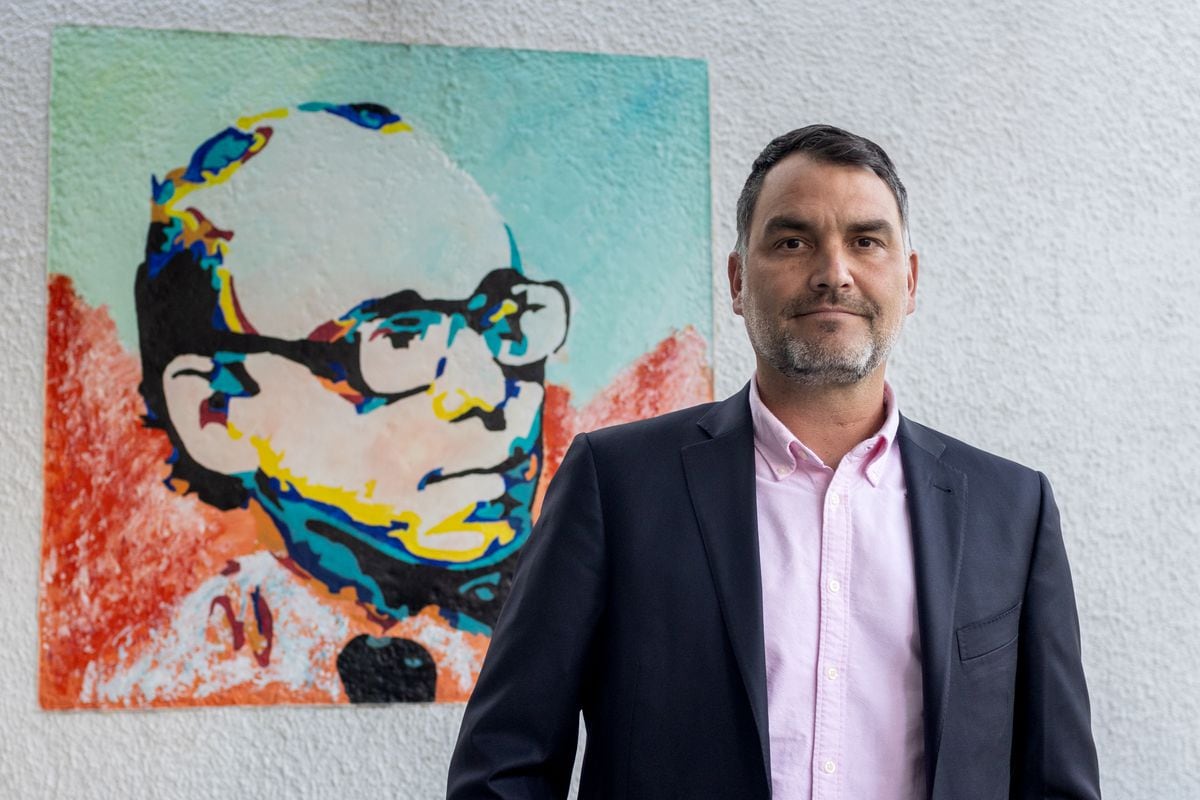Javier Macaya, Chilean senator and president of the Independent Democratic Union (UDI) party. Sofia Yanjari
During his first year in government, the Chilean president, the leftist Gabriel Boric, has not dealt with a single right in the opposition, but with several right.
The extreme wing is led by the former presidential candidate and founder of the Republican Party, José Antonio Kast, who surpassed him in the first presidential round in 2021, although he was defeated in the second round.
“Unfortunately, I don't find anything positive in the government of President Boric,” he said in an interview in December.
The other, which analysts refer to as traditional, conventional or classical, has generally been more open to dialogue.
One of its main representatives is the senator and president of the Independent Democratic Union Party (UDI), Javier Macaya.
Both of them, moderate and more extremist, have strengthened in the last 12 months, especially after the plebiscite that overturned the proposal for a new Constitution last September.
Faced with the new attempt to replace the current Fundamental Charter, the opposition to Boric is joining forces with a view to the election on May 7, when Chileans return to the polls to elect 50 members of the council that will draft a new proposal.
They will measure their weight before the Government with a compulsory voting system that has recently been replaced and, incidentally, they will know the size of one and another sector within the right.
“Today the differences between these rights are relatively clear,” says Cristóbal Rovira, a political scientist at the Diego Portales University (UDP).
“On the one hand, Macaya, with this idea of a dialogue right wing and, although very critical of Boric, willing to build bridges to get certain reforms out.
On the other, the hardest right, which says that there is no bridge to build, that the government is a failure from A to Z and that, for this reason, we should not sit down and talk, but wait for the next three years. [when the president ends his term] in order to be a majority.
They are two very different shades,” he adds.
The right wing of Macaya is part of Chile Vamos, a conglomerate in which the UDI coexists with Renovación Nacional (RN), where former president Sebastián Piñera (2018-2022) is a member, and a relatively new formation, Evópoli.
For sociologist Ernesto Ottone, who was an advisor to former socialist president Ricardo Lagos (2000-2006), to this opposition map must be added the populist People's Party (PDG), whose leader Franco Parisi came third in the first presidential round of 2021 with 12.8%.
“This is a sector that does not appear linked to the right, but it is quite right-wing, because at the end of the day it feels closer to the Republican Party than to any other political sector”, points out the essayist.
Precisely, the opposition, in all its versions, on Wednesday gave the biggest legislative coup that the Government has had since its installation, when it rejected the tax reform from the outset, key to financing the Executive's program.
Two of Boric's ministers, Carolina Tohá, of the Interior, and spokeswoman Camila Vallejo, blamed the defeat of the right and former president Sebastián Piñera, who reappeared on the political scene a year after leaving power with a very critical look. to reform.
Three months earlier, the attitude of the traditional right was different.
In December, the opposition and the ruling party reached a transversal agreement in Congress that allowed the start of the second constitutional attempt.
Macaya, although he was part of those who rejected the text, was one of the articulators of his sector.
Kast, on the other hand, has not stopped affirming that Chile does not need another Magna Carta.
The most vocal opposition was also the one that sat down at a security table, which Minister Tohá convened to promote an agreement in the face of the crime crisis that the country is experiencing.
But, after the 13 pardons that the president granted at the end of last year, 12 of them linked to crimes of the social outbreak of October 2019, the right froze their participation and cut the bridge.
It was a milestone in the relationship between La Moneda and the opposition, which became tense with two attempts to dismiss Boric's ministers, which were finally rejected.
For Sylvia Eyzaguirre, a researcher at the Centro de Estudios Públicos (CEP), a center for studies of the liberal right, that the right wing competes on two lists in the constituent election in May "was a good political decision."
“It makes it possible to show that there is diversity on the right, that they have different political projects and that this difference will be able to be seen electorally,” she explains.
It is a good moment for a sector that, according to its internal calculations, between moderates and radicals could win between 23 and 27 seats of the 50 that are in dispute in the election that will be held in eight weeks.
Subscribe to continue reading
Read without limits
Keep reading
I'm already a subscriber

